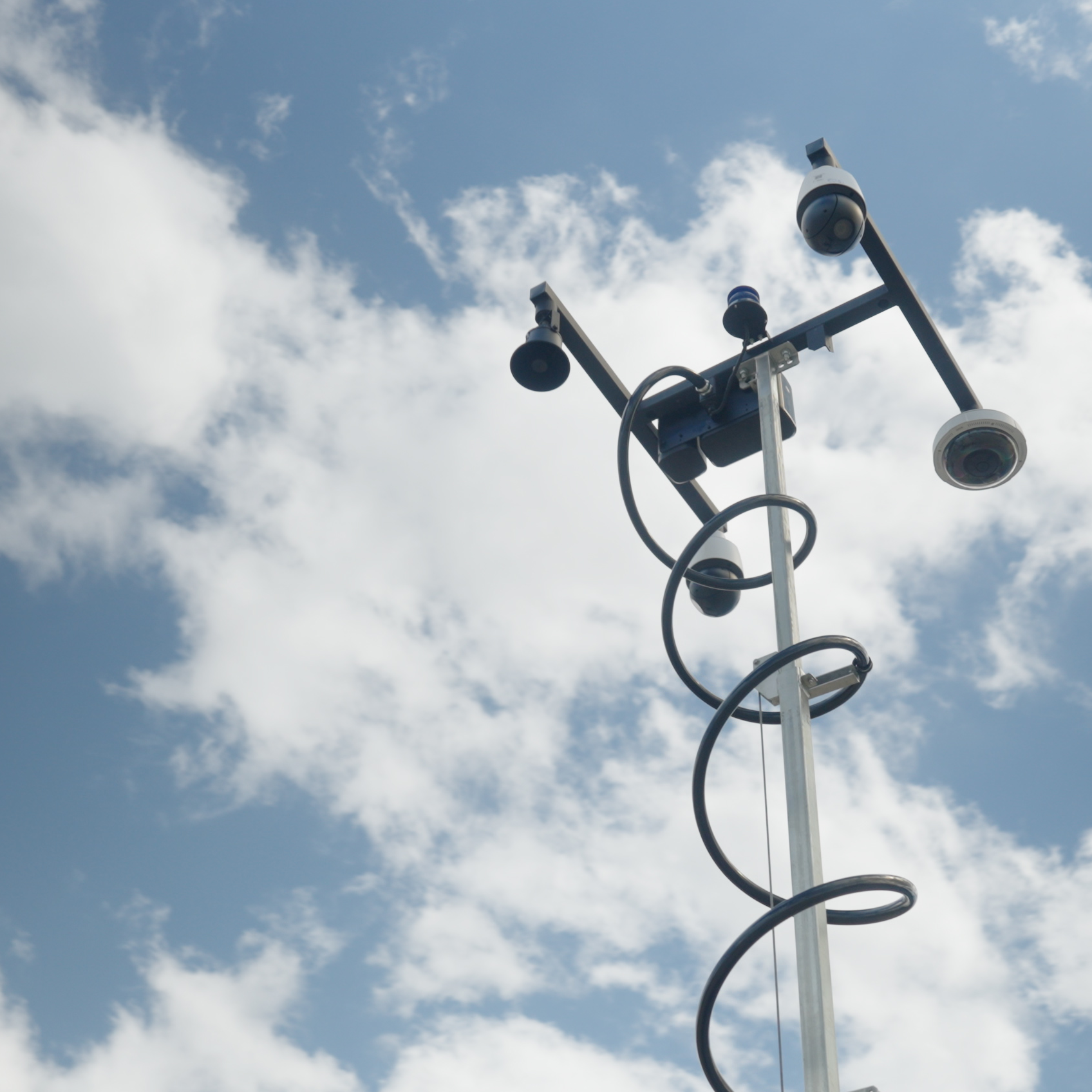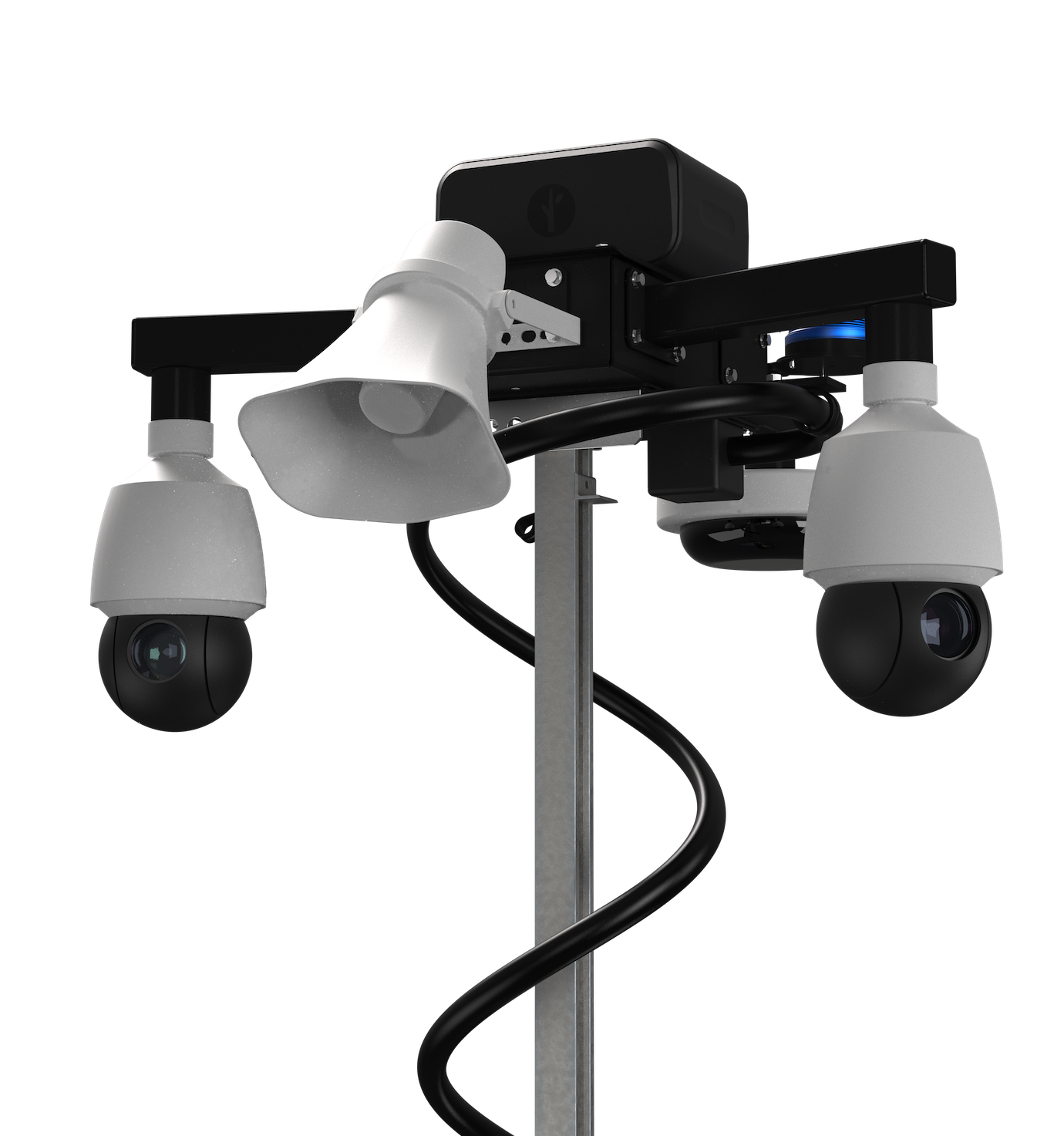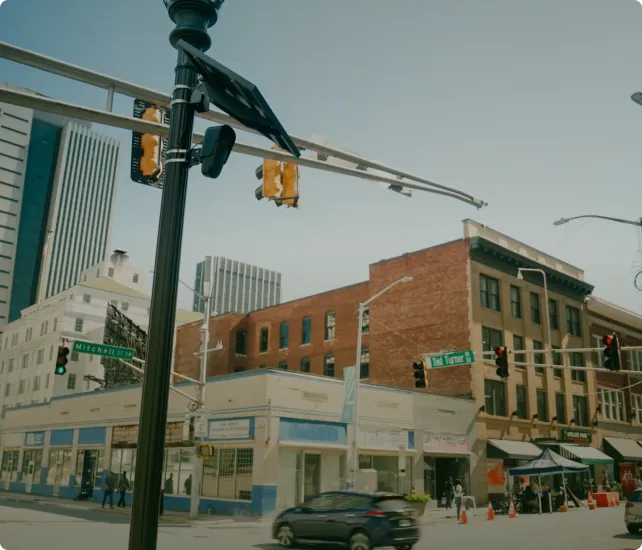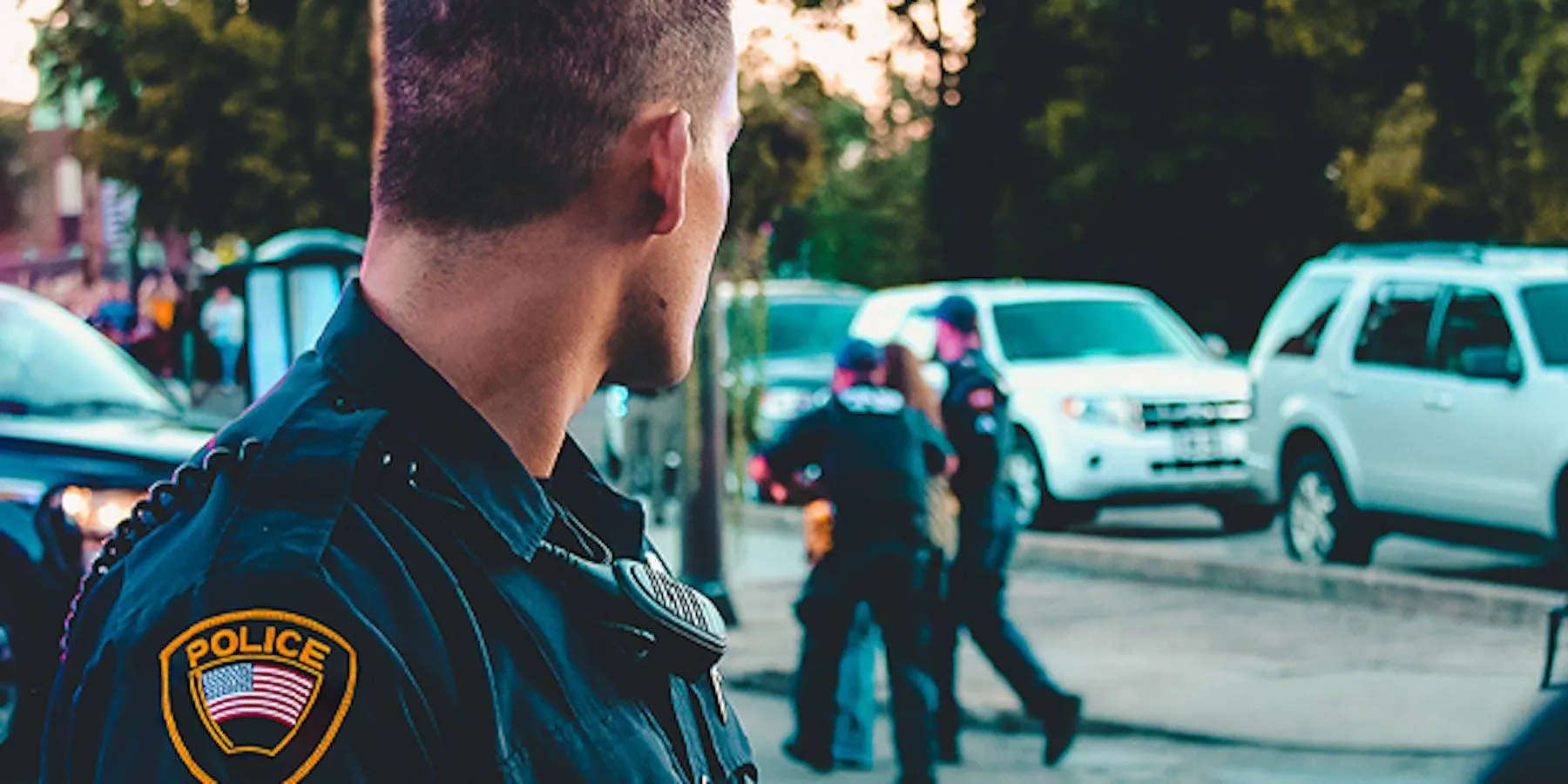


Any investigator would agree that information is a critical asset in solving crime.
However, according to Dalton Webb, Head of RTCC Strategy for Flock Safety and 18-year-long veteran of the Ft. Worth Police Department, information sharing across different jurisdictions can be a challenge. Knowing this, Webb has spent a substantial part of his career looking for better and more efficient ways to gather and disseminate information related to investigations. It’s why he turns to Flock Safety for a solution.
Flock Safety’s license plate reader (LPR) cameras assist with “deconfliction,” which Webb describes as the coordination between different parties with overlapping investigations.
When different agencies collaborate on solving cases through deconfliction, officers are more informed and prepared, and that means less risk for injury and harm. Information sharing is also of critical importance when agencies work together to reduce crime. Flock Safety equips law enforcement agencies with the technology to meet these goals.
What is Deconfliction?
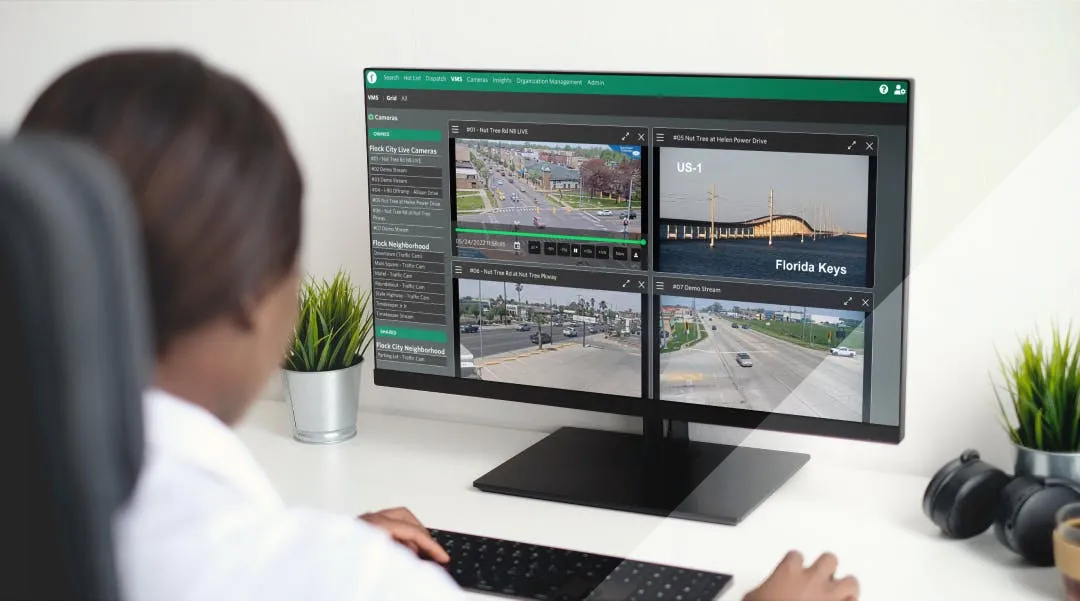
Deconfliction is the process of determining when law enforcement personnel are conducting an event in close proximity to one another at the same time. For instance, when two departments are investigating incidents tied to the same vehicle or suspect, there’s a potential for operational conflict. With deconfliction, the departments would be notified of the overlap.
Some cases are naturally deconflicted within a department through a central reporting system internal to that agency. Deconfliction outside a single agency happens when there is a central repository for case information that multiple jurisdictions can access. Deconfliction frees up more time for officers to follow fresh leads and close cases, especially when one agency has already gathered and documented evidence applicable to another department’s case.
In Webb’s experience, officers commonly associate deconfliction with narcotics investigations, though deconfliction is also used in connection with drug raids, sex trafficking, and undercover work. But deconfliction has many more applications. It supports the investigation of any kind of offense where a vehicle has been positively identified.
While agencies recognize the need for effective communication both internally and externally, they struggle when it comes to nailing down a consistent process. Traditionally, agencies have disseminated information through a crime bulletin, but this has some shortcomings. The information isn’t always available when it’s relevant or needed, which means data gets overlooked. Additionally, when agencies rely on a variety of tools and communication platforms, it is even more unwieldy to collaborate.
As a result, intelligence remains siloed in individual agencies.
The importance of deconfliction is underscored by the danger of what can happen when officers don’t have a system in place for cross-jurisdictional communication. For example, let’s say an officer in one jurisdiction is looking for a vehicle associated with the theft of weapons. An officer in another jurisdiction is looking for the same vehicle for catalytic converter theft. Without deconfliction, the second officer might locate the vehicle and approach the suspect without knowing about the possible presence of dangerous weapons.
Deconfliction primes officers to make more knowledgeable decisions about suspects and open investigations. This benefits officer safety and the potential for successfully closing more cases.
How an LPR camera helps with deconfliction
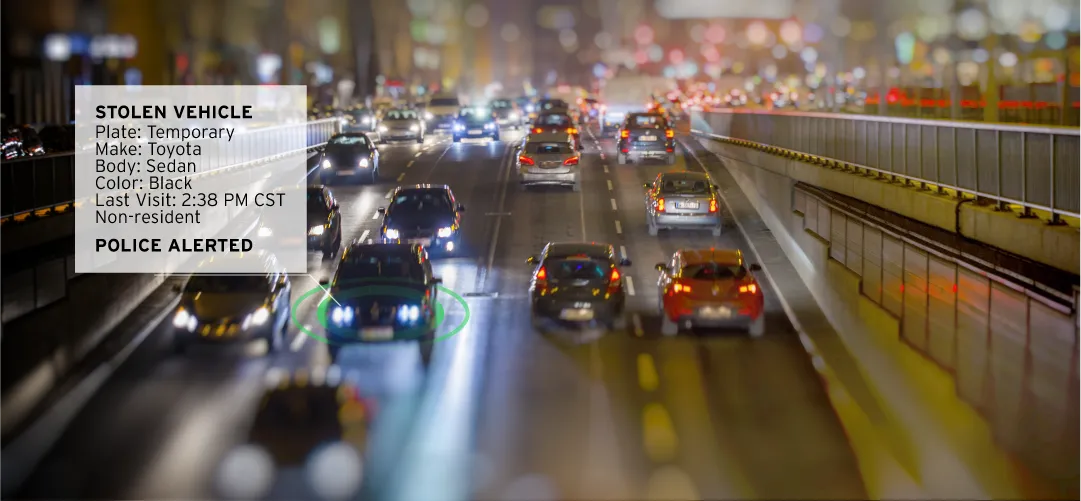
Bad actors don’t limit illegal activity to a specific jurisdiction. That’s why it’s critical that agencies collaborate on active investigations through deconfliction. The success of deconfliction depends on the right technology and the right system to ensure that law enforcement officers have relevant data as quickly as possible.
Flock Safety LPR cameras are extremely effective information-sharing devices for supporting deconfliction and cross-jurisdictional collaboration. This is in addition to reducing crime by capturing objective and actionable data in the form of a license plate number, along with unique identifying characteristics of a vehicle like bumper stickers, decals, and roof racks.
Flock cameras are most effective for deconfliction when used in conjunction with Real Time Crime Centers (RTCCs). RTCCs provide a hub for centralizing and relaying information across jurisdictions. When notifications are logged at an RTCC, all participating agencies stay aware of who is involved in an open case (state, federal, or otherwise) to avoid interference, complications, and safety risks.
If someone who committed a crime in one jurisdiction has been placed on the deconfliction hot list, another jurisdiction using the Flock LPR cameras can see this offense when the vehicle is spotted in their jurisdiction or if a suspect is apprehended for a different crime.
Deconfliction advisories alert officers that a captured vehicle matches an entry at another agency. This facilitates communication between departments.
Three Steps for Deconfliction with Flock LPR Cameras
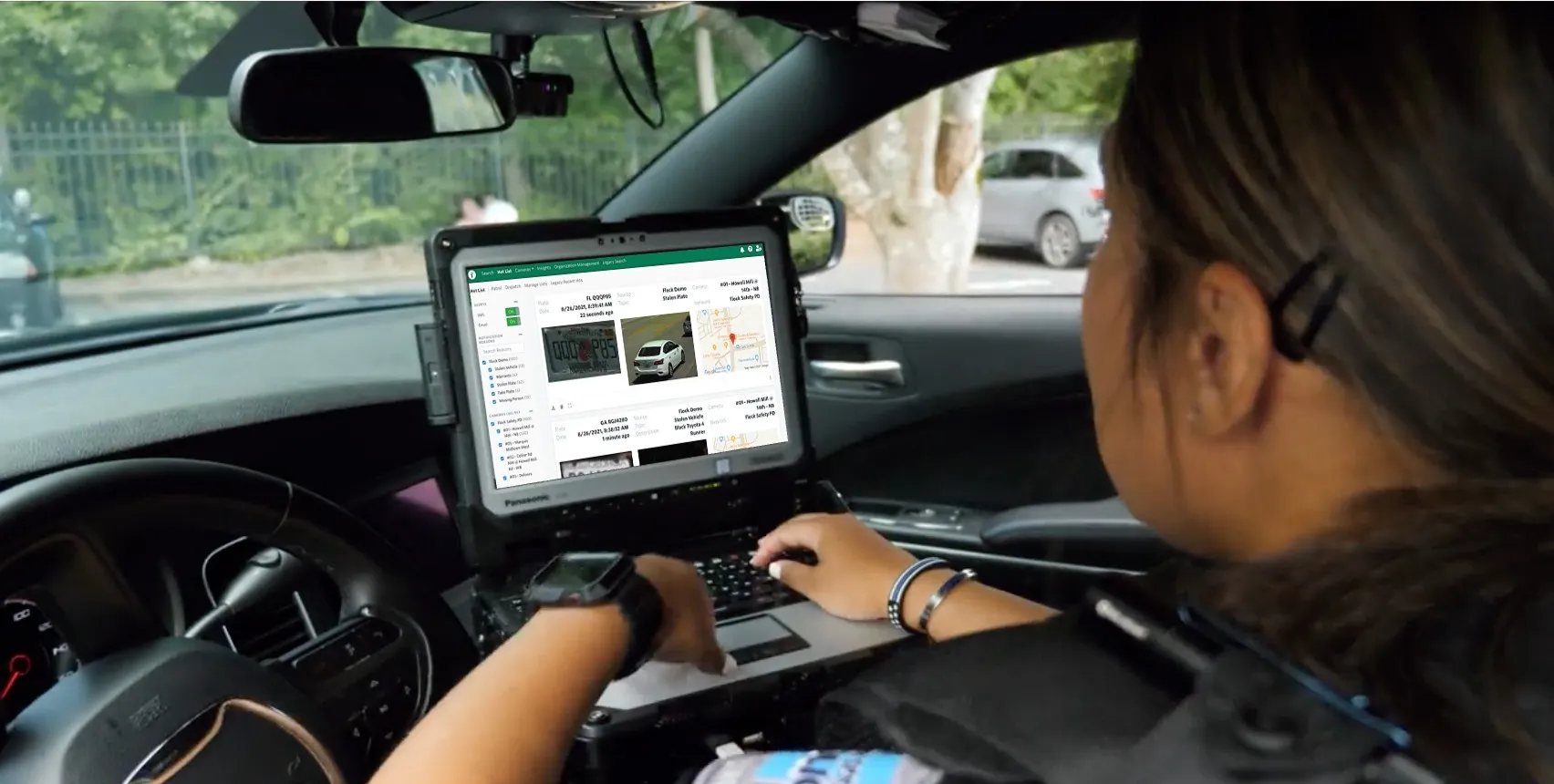
A success story from the Ft. Worth police department illustrates the advantages of using Flock LPR cameras with an RTCC to assist with deconfliction and solving crime.
The department investigating a bank robbery had gathered basic descriptions of the suspect and vehicle but was unable to get a license plate number. Detectives needed more information before they could move forward.
A bank robber doesn’t typically hit one bank and call it quits. Bank robbers will go on sprees, targeting multiple banks across jurisdictions. The same was true for this case. Another bank was robbed in a different jurisdiction within the Dallas-Ft. Worth Metroplex. The description of the suspect matched the first case.
A few days later, a third bank was robbed. Once again, the description was a match for the suspect. This time, law enforcement was able to get a license plate number.
The department investigating the first robbery entered the license plate in Flock Safety’s Hot List. About 30 minutes later, a Flock LPR camera captured the vehicle and sent out an alert. The Ft. Worth Real Time Crime Center was able to access the LPR cameras around the Dallas-Ft. Worth metroplex to locate the vehicle and track its movements.
When the vehicle was captured pulling into a hotel, officers at the RTCC notified officers in the field. A team was assembled to watch the suspect, who was apprehended shortly after that.
This story highlights the three key steps to using an LPR camera for deconfliction to increase evidence collection and decrease crime.
Step One: Add a vehicle license plate to the Hot List
Webb stresses that proactively and consistently adding vehicles to the Hot List is vital to successful deconfliction. When information is logged in the National Crime Information Center, there’s a delay with accessing that information, which you can avoid with Flock’s Hot List.
Flock knows that every minute counts when it comes to generating leads, so the Flock system is designed to send out real-time alerts. Without the speed of Flock’s system, officers would not have apprehended the Ft. Worth suspect so quickly.
Hot listing vehicles builds a large database of known vehicles linked to illegal activity. This increases the quality of information available to law enforcement. When agencies are actively gathering and sharing information, it puts pressure on active offenders, who realize they are more likely to be apprehended. This results in dropping crime rates.
Step Two: Communicate updates to the Hot List internally
Strong communication across jurisdictions begins with effective internal communication. Ensure your own department knows when vehicles are entered into the Hot List so that officers are aware of cross-listed investigations.
Step Three: Deconflict the Hot List
Deconfliction is complete when jurisdictions are sharing information via the Hot List and collaborating on concurrent investigations. This increases the ability for multiple jurisdictions to collaborate.
As Webb sums it up, “Use your hot lists. Use your deconfliction. Share the information. Come up with new ways to communicate internally and externally. And you will see crime start to go down.”
That’s why Webb relies on Flock Safety. Flock streamlines deconfliction and solves the challenges associated with external communication across jurisdictions. Better communication supports stronger and more united partnerships against crime. With Flock, departments have access to more information, and that means more solved cases.
Flock Safety is a public safety operating system that helps communities and law enforcement in 5000+ cities work together to eliminate crime, protect privacy, and mitigate bias. We build devices that capture objective evidence and use machine learning to create and deliver unbiased investigative leads to law enforcement. Flock Safety serves 5000 cities in 45+ states and is helping solve hundreds of crimes every day.
Explore More





Contact us
Discover how communities across the country are using Flock to reduce crime and build safer neighborhoods.

.webp)



